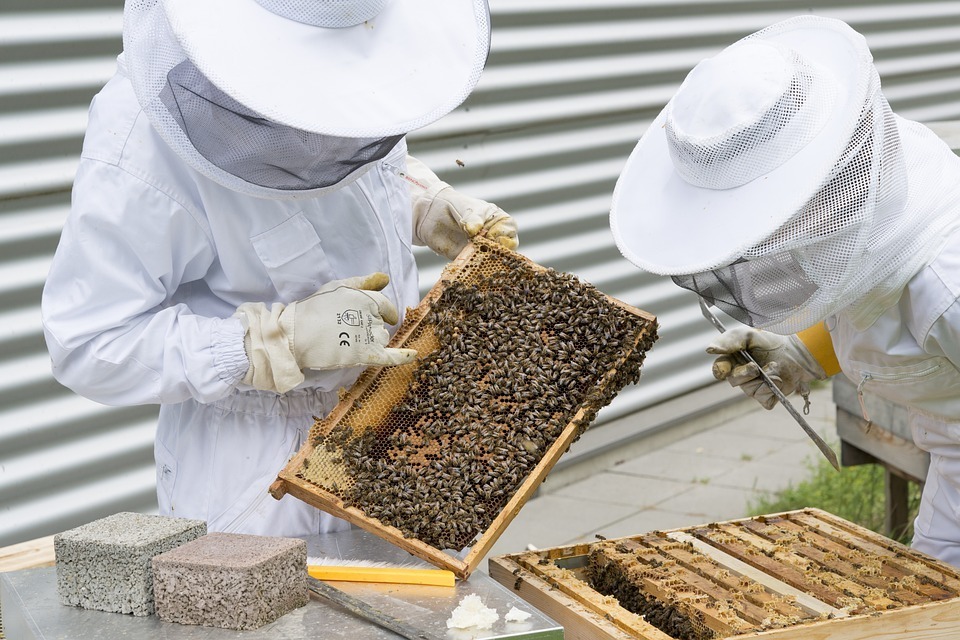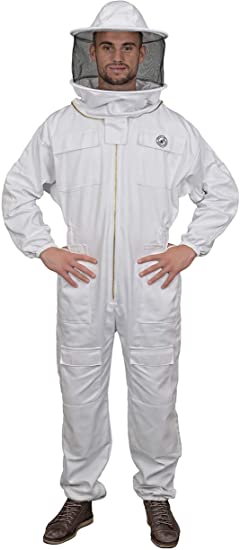Beekeeping is not an easy profession. It requires a lot of hard work and adaptability. Secondly, it’s not just a profession of physical labor, but it also has a considerable need for mental energy. This is because, to tender the needs of the bees properly, the beekeeper has to adapt himself according to the patterns of behavior set by the bees. By doing this, you can easily recognize the pattern of behavior that the bees currently have.
By identifying their habits, you could increase the productivity of your work to multiple folds. The following are the essential tips and tricks that you must use to thrive and prosper at beekeeping:
Get To Know Your State Laws
Don’t think that beekeeping has no set of rules to go by. Every beekeeper is under strict observation from the law agencies because of the immensity of this task. These laws change according to time and place, but one thing is for sure that LAWS ARE THERE! The fundamental law which you may find in almost every country is the law that bees must not be let to attack a neighbor or passerby.
To read the Federal and State Bee Laws and Regulations, click here.
Unleashing the Aggressiveness of Bees
Bees are naturally found to be docile; this means that they tend to be domesticated. However, people are scared of bees. This is because they become aggressive only when they feel threatened. Therefore, first of all, all beekeepers must get this false proposition out of their mind that bees are aggressive. Although they can be found to be aggressive at some times but unleashing their aggressiveness depends on several factors. For example, the skill of the beekeeper or the unavailability of the queen. These aggressive bees should be partnered by another group of bees to make a queen for both the groups.
Read more here.
Keep Your Bees Hydrated
All living things need water, including bees. They should be facilitated by some amount of clean water. Water should be placed in a shady area to keep it fresh and easily drinkable. Make sure that your area for water is easily accessible. Healthy groups of bees require about almost a liter of water during summer. If you aren’t able to provide water to the bees, they will move to another location to tender their need, and it would become difficult for you to divert them.
Feed Your Bees Pollen or Pollen Substitute
As we have talked about hydrating the bees above, now let’s get to know about how you should feed your bees. Bees basically eat pollen. It is a source of nutrients for them and helps them develop to their fullest. For feeding them, you could also use a pollen substitute. To make pollen substitute, all you have to do is mix whole wheat flour, cornmeal, and powdered milk in a bucket. Place this pollen substitute bucket right next to the beehive. The bees will then pick the pollen using their hind-legs, which will keep them working.
Consistency
Consistency is the key to success in every field of life. In the case of beekeeping, it is of utmost importance as bees change their behavioral patterns from time to time. In a matter of a few weeks, they could make their space more congested or may change their queen. Therefore, you must check your beehive consistently so that you can make sure whether everything is healthy or not. The earlier you detect the problem, the better it will be for you.
Avoid Disturbing the Bees
When you are only beginning out as a beekeeper, it’s tempting to observe the bees frequently. You will be tempted to travel around, checking the hive(s) for up to even ten times during a day. This is quite normal in any respect since everybody loves their bees. However, avoid doing this frequently because opening and closing beehives may expose the bees to heat and wind, which cause them stress and disturbance. Avoid this, particularly once the bees are attempting to settle down.
Additionally, you ought to avoid an excessive amount of insulation on the hive throughout winter. Colonies that are wrapped tightly eventually end up in the wet buildup that kills the bees.
The Number of Bee-Hives
There is no limit to a specific amount of hives that one should have, even if he or she is an expert. However, you must adhere to the state laws when establishing your bee farms. The beginner ought to begin little and proportion over time. The perfect range for the novice is two to five hives at the beginning. This range is well manageable and permits winter loses. You can increase this range once you gain confidence and beekeeping skills.
A well-established beehive has the potential of earning fifty to one hundred pounds of surplus honey annually. This is often a decent amount of honey for household and business purposes.
Knowledge is Power
You may have heard the profoundly used proposition that “Knowledge is Power.” In the case of beekeeping, this proposition couldn’t be more accurate. We are basically living in an age of information where one can easily find dozens of articles, columns, books, and courses on a specific profession that we want to adopt, or have adopted. If you’re a beekeeper, then bees must come first in anything that you do because the happiness of both of you is interdependent.
You should read and collect information as much as you can about the bees and what environment should you equip them with, so that they could get more productive.
Here are some more things to consider when getting started with beekeeping:
Is My Area Suitable For A Backyard Honey Bee Hive?
Keeping bees in your backyard is an excellent way to pollinate surrounding flowers, trees, and vegetable and fruit crops. But again, before you start beekeeping in your backyard, you should investigate your surrounds and local council regulations regarding beehives. You should speak to your neighbors as well about your intentions to keep beehives in your backyard. This is important because some people can suffer from serious side effects from bee stings that can result in death.
How to Maintain a Healthy Beehive?
When starting out as a beginner beekeeper, it may look easy to you to place a hive and then wait for the honey bees to come. It is not the case as there is a lot more to consider when maintaining a new beehive. You need to inspect it on average once a month for the following key things:
- Ensure that the hive still has a healthy queen with strong brood.
- Look for any possible signs of disease such as discolored, irregular and patchy brood. A foul smell coming from the hive can often mean disease as well.
- If you live in the high humidity areas such as Tropical North Queensland, you should look for hive beetles that can destroy a healthy colony.
Basic Beekeeping Supplies Needed To Get Started:
When just getting started with beekeeping, you don’t need too much equipment. The essential piece of equipment is your protective clothing that includes a beekeeping suit, closed in shoes, and gloves. You should never approach your beehive without wearing proper protective clothing.
Apart from the protective clothing, you will need a bee hive smoker as well. It works to calm in the bees, allowing you to work on your hive without getting stung. For more convenience, you can also hire honey extractors.
Conclusion
The number of beekeepers is expected to boom in the coming decades. More and more part-time beekeepers are currently trying their best to earn as much as they can from this activity as it involves much less investment, both of time and money, and with little investment, it can generate colossal self-contentment. Beekeeping is an excellent opportunity for people to make their “passion their profession.”


